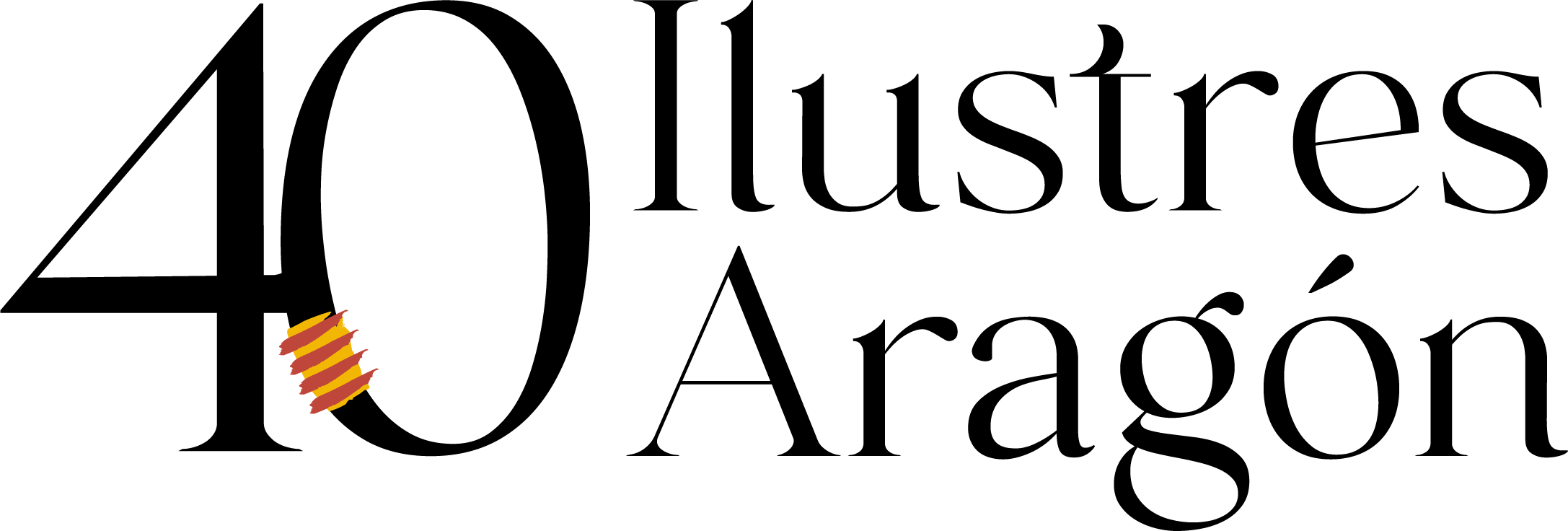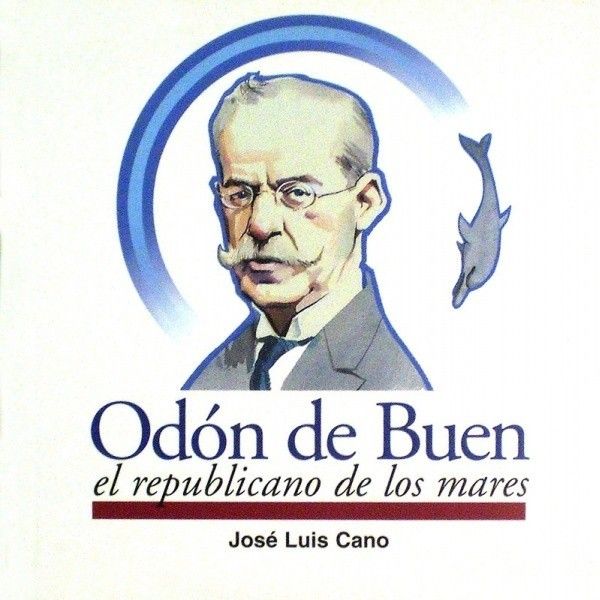Odón de Buen y del cos
Science and freedom of thought
Zuera, 1863 – México, 1945
The son of Petra del Cos and Mariano de Buen, a tailor in Zuera, was born three hundred kilometres from the sea. Very gifted in his studies, the town council of his village gave him a scholarship so that he could study for his baccalaureate in Saragossa. The family also made a great effort: they all moved to the capital, where his father got a job as an usher at the Teatro Principal. The young Odón gave private lessons to supplement his income. He finished high school with honours and, again with a scholarship, went to Madrid to study Natural Sciences. He had a special predilection for this subject ever since a friend gave him the Tratado de plantas de Aragón by the great botanist from Samper de Calanda, Francisco Loscos.
He began to study petrography, while continuing to give private lessons (his pupil was the future dictator Miguel Primo de Rivera) and to attend field work in the mountains of Madrid. His botanical work was recorded in his Anales de Historia Natural (1883). Together with Vicente Castelló he created the Anuario Científico Español (Spanish Scientific Yearbook).
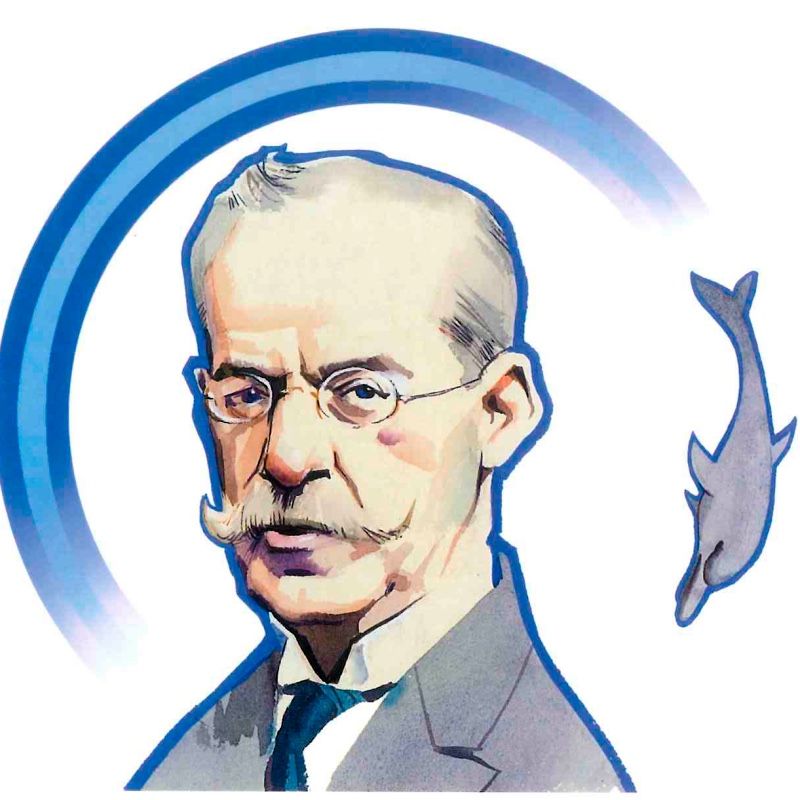
Life
After his father died during the cholera epidemic of 1885 and he took charge of the family, the young naturalist was selected for a scientific expedition aboard the frigate Blanca. Conceived as training for midshipmen, the voyage was planned in two phases: in northern Europe and in the Mediterranean. He collected samples of species that he classified and forged his oceanographic vocation, as he would later recount in his book From Kristianía to Tuggurt:
On that trip I acquired the definitive orientation for my future personal life. I met the sea and contemplated it: magnificent, imposing and despising the insignificance of our wooden boat. I met expert men, aware of the superiority of human intelligence. I felt an insatiable yearning to know the secrets hidden beneath the waves and the causes of the origin of life in the oceans. I decided to devote myself to oceanography, which was then in its infancy.
Work
On his return, he opted for a university post. In 1889 (the same year of his marriage to Rafaela Lozano) he won the chair of Zoology at the University of Barcelona, where he carried out his work until 1911, promoting the teaching of science in a remarkable way: he obtained advanced scientific material, established laboratory practices and field trips and defended the explanation of natural phenomena on the basis of evolutionism. With progressive, advanced and republican ideas, he collaborated in the magazine Las Dominicales del Libre Pensamiento, which was edited by his father-in-law Fernando Lozano (Demófilo). He later became involved with the Escuela Moderna directed by Francisco Ferrer Guardia: he contributed to its Boletín, became a member of its board of trustees, gave lectures and wrote textbooks for this innovative educational project.
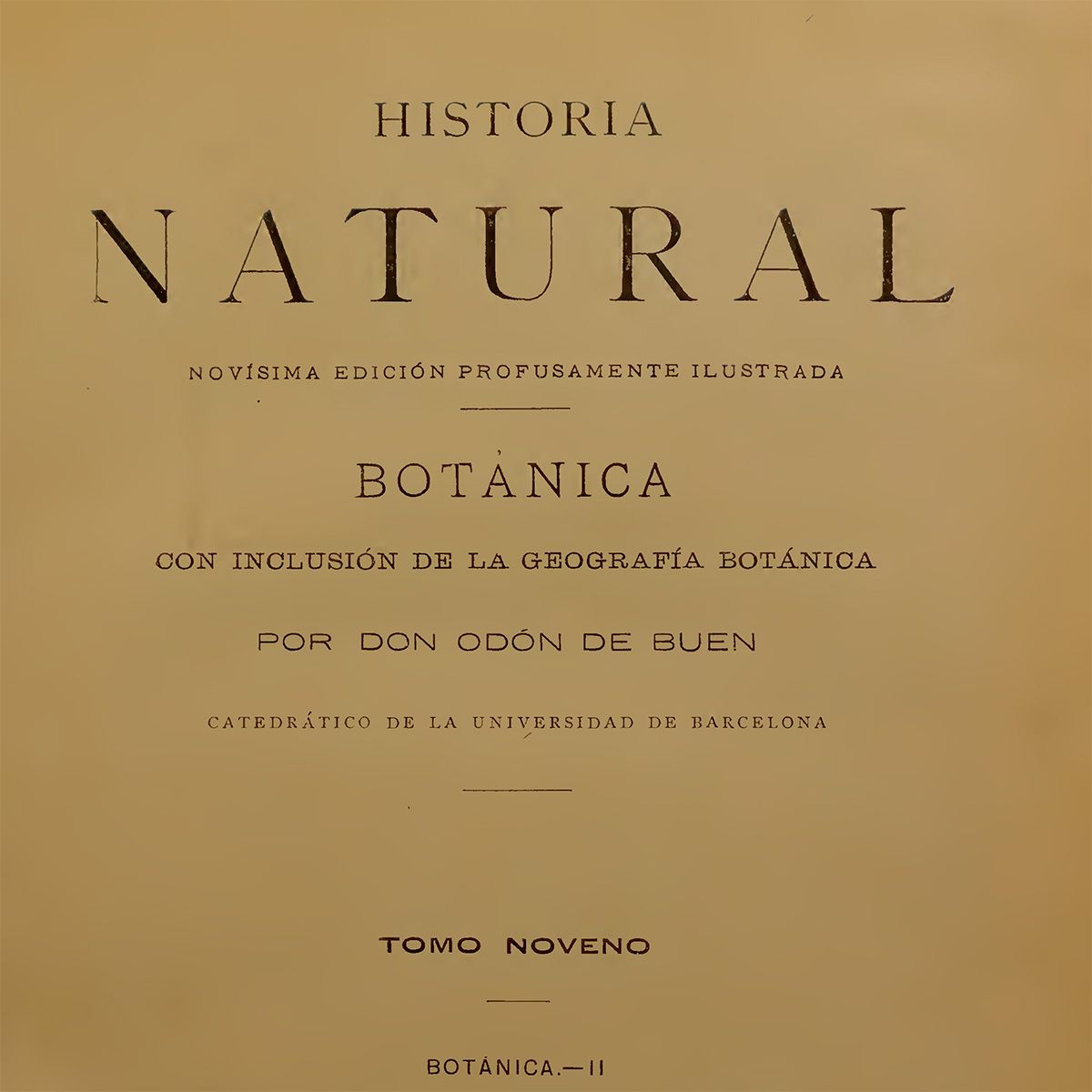
Natural History
His illustrated Historia Natural (zoology, botany and geology), very popular in Spain and in some South American countries, sparked the ire of the most conservative sectors. The Catholic Church included him in the Index of banned books, while his defence and dissemination of Darwin’s evolutionary principles led the Bishop of Barcelona (later Cardinal) Salvador Casañas to excommunicate him: in 1895 he was removed from his professorship and, amid strong currents of protest (the students even stoned the bishop’s residence), De Buen moved his classes to the Federal Centre, continuing with his outings to the countryside, until the Government returned his professorship to him. He was elected to the Barcelona City Council in 1903 and four years later he was a senator.
Thanks to his work, marine biological laboratories were set up in Mallorca, Malaga, Vigo and Santa Cruz de Tenerife, which were fundamental for the training of generations of oceanographers. Various maritime campaigns from 1908 on board the ship Averroes enabled him to draw up navigational charts, study the seabed of the Strait of Gibraltar and analyse the Mediterranean flora and fauna.
In 1911 he moved to the University of Madrid: from the chair of Mineralogy and Botany until his retirement in 1934, he continued his pedagogical work in defence of scientific, integral and experimental teaching. He published works such as Origen de los mares (Origin of the Seas) and Metamorfosis de los animales marinos (Metamorphosis of Marine Animals). His work was decisive in the founding of the Spanish Institute of Oceanography in 1914.
A friend of Santiago Ramón y Cajal and the Valencian sculptor Mariano Benlliure (who made a bust of him), his international prestige grew and he was showered with awards and decorations. In 1919 he took part in the International Conference for the Scientific Exploration of the Mediterranean and ten years later he chaired the International Oceanography Congress held in Seville. He was involved in the International Council for the Exploration of the Sea and the Ibero-American Oceanographic Council, among many other scientific organisations.
When the Civil War broke out, Odón de Buen was in the laboratory in Palma de Mallorca. The island was in the hands of the rebels, who imprisoned him for a year, until his release by the Republican Government in a swap with Primo de Rivera’s relatives. By then, his son Sadí, a doctor and brilliant researcher against malaria and malaria, had been murdered in Córdoba by the insurgents. He lived until the end of the war in Barcelona, where he chaired the Higher Council of Culture, and from there he moved to France. His wife died in Banyuls-sur-Mer, the headquarters of a marine laboratory with which De Buen had collaborated throughout his professional life.
Some of his children had gone into exile in Mexico, and in 1941 he joined them. He collaborated with the Universidad Autónoma and published articles on science and politics in the press. He died in Mexico City in 1945. His remains returned to Zuera several decades later. Since 2003, Odón de Buen has been at rest in the town that gave him so much, to which he always had in his heart and mind, and of which he is a favourite son.
References
- Antonio Calvo Roy (2015): Odón de Buen. Toda una vida. Zaragoza: Ediciones 94.
- José Luis Cano (2003): Odón de Buen. El republicano de los mares. Zaragoza: Xordica.
- Antonio Pérez Morte (2013): “Odón de Buen”. Imán magazine. https://revistaiman.es/odon-de-buen/
- Wikipedia: https://es.wikipedia.org/wiki/Od%C3%B3n_de_Buen
- Spanish Biographical Dictionary, Royal Academy of History: https://dbe.rah.es/biografias/9233/odon-de-buen-y-del-cos
- Odón de Buen (2003): Mis memorias (Zuera 1863 – Toulouse, 1939). Zaragoza: Institución Fernando el Católico – Ayuntamiento de Zuera.
- Odón de Buen (2018): Cartas a un labrador, 1887-1894. [Editing, introduction and notes: Antonio Calvo Roy]. Zaragoza: Institución Fernando el Católico. https://ifc.dpz.es/publicaciones/ebooks/id/3715
Teaching activities
The village of Odón de Buen
Odón de Buen was from Zuera, less than thirty kilometres from Saragossa.
Locate Zuera on a map of Aragon.
Today that distance can be covered in a few minutes, but one hundred and fifty years ago… that was something else. In order to continue his studies after primary school, he needed a scholarship from the Town Council and his family travelled with him to the Aragonese capital. This gives us an idea of how much confidence his family had in his worth as a student and how important his professional future was to them at a time when studying was not within the reach of most people.
While he was building up his professional career, Odón wrote in the free-thinking press and published a series of pedagogical articles entitled “Letters to a farmer”, addressed to a fictitious friend in Zuera. One of the things he said was this:
You should not be surprised that I am a naturalist; you know that I was born in the countryside and grew up amidst the greenery of the poplars and fruit trees that surround our home town, which are reflected in the purest waters of the Gállego. You know that I have slept more than one siesta among the golden ears of corn crushed by the threshing machine to extract the rich grain, later converted into the white bread of our homes, and that, instead of breathing the damp and mouldy air of the cloisters, I have always tried to fill my lungs with the air of our orchards, perfumed in spring by the wild scent of roses, jasmine and honeysuckle.
If you live in a city, do you have a village, your parents’ or grandparents’, where you go for holidays, festivals or weekends? If so, or if you live in a smaller town, are there corners or places that you particularly like, where you feel at home? Share memories or experiences in class.
He never lost touch with his hometown. Throughout his life, he spent periods of rest in Zuera. He felt indebted to his neighbours and, thanks to his long-standing personal relationship with the dictator Primo de Rivera, he managed to get new schools built.
In his will he had written that, faithful to his free-thinking ideas, he wanted a civil burial and to be laid to rest, when possible, next to the remains of his wife. In 2003, his remains were taken to a mausoleum in the cemetery of Zuera (three years later, Rafaela would be brought from France), and the Town Council, together with other provincial and regional institutions, paid him several tributes, published his works, etc.
Do you think that Odón de Buen was able to reciprocate the generosity of his neighbours and do you think that Zuera has been able to recognise the value of this son of theirs?
At the end of 2021, the Odón de Buen Foundation was presented in Zuera, taking up the baton from the Study Centre which, with the name of the wise man from Zuera, has been working for some time. The aim of this Foundation is to study and disseminate the life and work of Odón de Buen y del Cos, as well as to continue his work through research and dissemination of the subjects on which he focused his work.
Among these proverbs or sayings, some are more in line with gratitude and generosity, while others are more mistrustful. Which ones would be more in line with Odón de Buen’s experience?
- It is well-born to be grateful
- Don’t bite the hand that feeds you.
- Raise crows, they’ll gouge out your eyes
- He who gives much, receives much
- Thanks and good treatment are worth a lot and they cost cheap
Without a doubt, 1; also 4 and 5; not at all: 2 and 3.
The initiatory journey
The frigate Blanca, on which Odón de Buen embarked for the voyage that turned him definitively towards oceanography, had survived the battle of Callao.
Look for information: where and when did this battle take place? In what sea? In which conflict does it take place?
Port of Callao, in Peru (Pacific Ocean), on 2 May 1866, as part of the Spanish-South American war that pitted Spain against Peru, Chile, Ecuador and Bolivia.
On that ship, he embarked on a scientific expedition that took place in two phases: one in the North Sea and the other in the Mediterranean. As a man of science with a love of writing and a good pen (things that are perfectly compatible), he recorded the adventure in his book De Kristianía a Tuggurt (From Kristianía to Tuggurt).
Look up information and assign each place visited by Odón de Buen to one of the two areas: North Sea and Mediterranean Sea, indicating the country in which they are currently located:
Kristianía (Oslo) / Villefranche-sur-Mer / Tuggurt / Copenhagen /
-
- North Sea: Kristiania (Norway), Copenhagen (Denmark)
- Mediterranean Sea: Villefranche (France), Tuggurt (Algeria)
Since we are talking about scientific missions that had a “precursor” character, we find another voyage that took place fifty years before the Blanca expedition. On that occasion, another naturalist, in this case an Englishman, began to envisage an important scientific theory of which Odón de Buen would be a strong advocate. Complete this paragraph with the missing words:
Charles Darwin embarked on the ship … (1) …. He sailed from the English port of … (2) … in 1831 and returned in … (3) …. During those five years around the world, he took notes of everything he saw: fauna, flora, fossil remains, new species, phenomena that caught his attention, etc. All this work, of which he periodically sent chronicles, matured over a long period of time until the publication in 1859 of his great work: … (4) … This book is the basis of the Theory of the … (5) …, revolutionary and controversial at the time, and today unquestionable.
(1) HMS Beagle; (2) Plymouth; (3) 1836; (4) The origin of species; (5) Evolution
Odón de Buen discovered and classified some marine species whose names, in Latin description, sound a bit like a tongue twister, and which incorporate the surname of this scholar. These are two isopods (Metopontus Bueni and Porcelio Bueni) and a goby (Odondebuenia balearica).
Research: what are isopods, what are gobids?
The exile of scientists… and saving science
Odón de Buen had to leave Spain at an old age, although he was very active intellectually. The dominant ideology after the victory of the rebels against the Republic in the Civil War was incompatible with his thinking and his political, social and civic career. Exile was a painful experience shared by many scientists who, thanks to initiatives such as the Junta de Ampliación de Estudios, and thanks to the drive and management of people like Odón de Buen himself and many others (including Santiago Ramón y Cajal) had given a notable boost to science in Spain in the first decades of the 20th century. The ideals of modernisation were cut short after 1939.
The main destinations of the exiled scientists were France and Mexico (precisely the two countries to which Odón de Buen went), but also Venezuela, the United States, Argentina, Cuba and the Soviet Union. More than three hundred were university professors, five hundred were doctors and more than a hundred scientists and professionals from other fields: chemists, pharmacists, physicists, biologists, anthropologists and mathematicians. In addition, there were hundreds of researchers in social and humanistic sciences.
Among them, many were from Aragon, just like our protagonist. Find out more about these people and match each of them with the description and discipline that best suits them.
- Honorato de Castro a) Great pedagogue born in Atea
- Santiago Hernández Ruiz b) Museographer and art historian
- Juan Vicéns de la Llave c) Physicist and mathematician born in Borja.
- Rafael Sánchez Ventura d) Saragossa librarian and archivist
Solutions: 1-c; 2-a; 3-d; 4-b
Nor should we forget the “internal exile” suffered by intellectuals who paid for their commitment to the Republic and were professionally purged, removed from their professorships, demoted in the ranks, etc. Among them we can highlight two Aragonese: Miguel Catalán (a prestigious physicist and spectroscopist) and the famous librarian, archivist, documentalist and lexicographer María Moliner. Not to mention other professions related to research and teaching (schoolteachers, teachers, professors in institutes and faculties…), communication and journalism, arts and literature… and not forgetting even worse ends than internal and external exile.
Do you find any parallels between these situations of eighty years ago and more, and others of our times, in other places? What wars, what conflicts, in what places, are currently taking place? How are refugees, the persecuted, perceived? Do they have much prominence in the press?
Odón de Buen was reunited in exile in Mexico with some of his sons, who also had brilliant professional careers. Of the six “De Buen Lozano” he had with Rafaela, Rafael and Fernando followed in his footsteps in oceanography, Demófilo was a lawyer, Víctor an engineer, and Eliseo and Sadí devoted themselves to medicine. The latter suffered a tragic end when he was assassinated in September 1936 by fascist insurgents in Cordoba. Sadí de Buen was a prestigious researcher in the fight against malaria and malaria. The structure he had created collapsed, to such an extent that, in the opinion of many specialists, the main health problem in Spain in the immediate post-war period was precisely malaria, against which there was no solvent medical strategy.
Odón de Buen’s personal and family tragedy is intertwined with something that is a sad and real metaphor of what the Civil War meant in terms of loss of human capital, of impoverishment in all senses, and explains how this affected people’s living conditions and quality of life.
Do you think that phrases such as “Science saves us” or “Without science there is no future” may be a bit exaggerated? Can you argue your opinion? Do you see it in relation to any current issue?
Friendship above all else
Odón de Buen was friends with people with whom he shared sensibilities and ideas (at least in part), such as Santiago Ramón y Cajal and the anarchist Francisco Ferrer y Guardia, the driving force behind La Escuela Moderna. He asked the latter to avoid easy indoctrination, but he agreed completely with his rationalist projects and pedagogical renovation.
Do some research on the Modern School: what did it consist of, what happened to its promoter?
Precisely, in the Modern School he coincided with another great Aragonese scientist who, with more conservative ideas, would always maintain great integrity. Andrés Martínez Vargas, from Barbastro, was one of the great promoters of modern paediatrics. Despite their ideological differences, Odón de Buen always maintained a good relationship with him. And he never lost the friendship that he began at a very young age with another person who was at the opposite side of his thinking: Miguel Primo de Rivera, military dictator of Spain between 1923 and 1929 with the agreement of King Alfonso XIII.
Do you find it shocking that two people who think very differently can be friends?
In a collection of his speeches, Síntesis de una vida política y científica (Buenos Aires, 1944), Odón de Buen says: “I have the satisfaction of being able to affirm that I have deserved the respect and even the affection of all those who have treated me, even though their ideas were diametrically opposed to mine. Only those who did not treat me or those guided by unhealthy passion, which blinds, fought me and persecuted me”.
Ideas, management, remembrance… and a closing quote
Odón de Buen never renounced his ideas. He advocated education for all social classes (he himself started from his experience as a poor child who was able to study thanks to the effort and generosity of others) and practised by example, giving evening classes to workers and opening himself up from the rigidity of the university. Likewise, he was aware that investment in research was key to economic development: that is why he believed that his scientific studies could boost the fishing industry, hatcheries and fish farms… that herbaria of marine plants, studies of plankton and pollution analysis would help all of this.
All of this was conceived within a clear defence of “the public” and as the basis of collective wealth:
In the future, oceanography must be the common basis of our work (…) since the oceans have been everything in the Earth’s past and still dominate. Since the oceans belong to everyone and no one owns them, they belong to the most daring thoughts, to the most enterprising scientific spirits, to the most difficult and the best organised human labour, to the most civilised and the most powerful peoples. They will be the field of all scientific endeavour, and their exploration must be collective and their exploitation rationalised by common agreement. They still hold transcendental scientific revelations and unexplored wealth. Oceanography is thus an international science and must always be so.
In this sense, he was also a manager who, not infrequently, had to draw the attention of political decision-makers.
His international prestige helped in this regard. The list of titles and decorations he received is very long: he was Honorary President of the Societé Zoologique de France, doctor honoris causa of Bordeaux, member of the Geographic Society of Washington, Grand Cross of the Portuguese Order of Santiago, Grand Officer of Saint Charles of Monaco, Grand Officer of the Italian Crown, Commander of the French Legion of Honour… In Spain, numerous academic corporations honoured him with their distinctions.
But, curiously, perhaps due to his death in exile and the vacuum of the decades of dictatorship in Spain… he is still not sufficiently well known. As we have seen, things have changed in Aragon: Odón de Buen deserves even greater recognition.
Besides his scientific, divulgative and didactic works, Odón de Buen wrote much more: we have seen works in different registers: travel books, memoirs, essays (also a translation of the memoirs of the Italian revolutionary Garibaldi and a biography of the great Aragonese enlightened economist Jordán de Asso). All of this was greatly dissipated by the circumstances of exile, although progress has also been made (you can see a sample of this among the references shown).
But perhaps what best sums up his attitude to life is this sentence from his testament:
“Our religion was based on a great rectitude of conscience, on the cult of the good, of the family, of freedom, of justice and of work. We did as much good as we could; we did not wrong to anyone knowingly”.
Odón de Buen, the republican of the seas
Download from this link the PDF of the publication edited by Xordica publishing house with the sponsorship of the Obra Social de Ibercaja.

DIRECCIÓN GENERAL DE POLÍTICA LINGÜÍSTICA
Departamento de Educación, Cultura y Deporte
Parque Empresarial Dinamiza (Recinto Expo)
Avenida de Ranillas, 5D - 2ª planta
50018 Zaragoza
Tfno: 976 71 54 65
Colabora:


